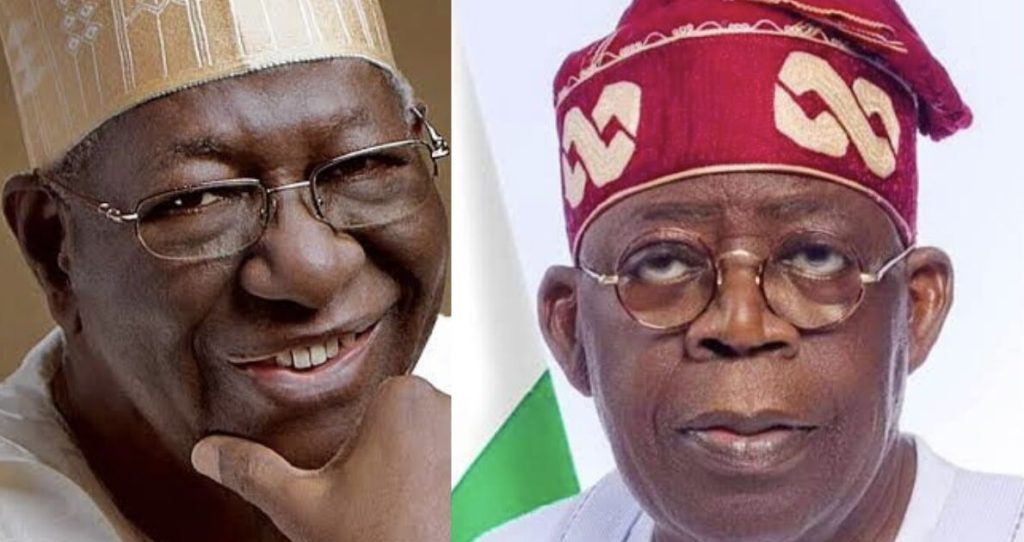On June 12, 2023, Tony Anenih Jr., son of the late Chief Anthony Anenih, a prominent Nigerian politician, issued a strong rebuke of the Nigerian presidency and defended his father’s legacy. This response came in the wake of President Bola Tinubu’s Democracy Day speech, which seemingly criticized the political practices of individuals like Chief Anenih, who was a key figure in the People’s Democratic Party (PDP) for many years. The younger Anenih argued that his father’s contributions to Nigeria’s democracy had been unfairly misrepresented and that the current administration was attempting to rewrite history to suit its own narrative. This public disagreement highlights the complex and often contested interpretations of Nigeria’s political past and the ongoing debate surrounding the legacies of its influential figures.
Tony Anenih Jr.’s defense of his father centered on challenging the narrative presented by President Tinubu, which, according to him, painted a simplistic and inaccurate picture of Chief Anenih’s role in Nigerian politics. He countered the accusations by emphasizing his father’s commitment to democratic ideals and his instrumental role in building and strengthening the PDP, a party that held power for a significant period after the return to civilian rule. He highlighted Chief Anenih’s organizational skills and political acumen, arguing that these traits were essential to the party’s success and, by extension, to the consolidation of democracy in Nigeria. He further asserted that his father’s actions were always motivated by a desire to serve the nation and that any perceived shortcomings should be viewed within the context of the challenging political landscape of the time.
A significant aspect of Anenih Jr.’s argument focused on the concept of “Fixer,” a label often attached to his father. While acknowledging that the term carries negative connotations, suggesting backroom dealings and manipulation, he argued that it also reflects Chief Anenih’s effectiveness as a political strategist and his ability to navigate complex political situations. He framed this “fixing” as a necessary component of political negotiation and compromise, crucial for maintaining stability and achieving consensus in a diverse and often fragmented political system. He maintained that his father’s interventions, often behind the scenes, were instrumental in resolving political impasses and preventing potential crises, thus contributing to the overall stability of the nation.
Furthermore, Anenih Jr. criticized the current administration for what he perceived as selective criticism and a tendency to scapegoat figures from previous administrations for the nation’s current challenges. He argued that focusing on past political figures distracts from the present government’s responsibility to address the pressing issues facing the country, such as economic instability, insecurity, and corruption. He called for a more nuanced and objective assessment of the past, urging the government to acknowledge the contributions of individuals like his father, even while acknowledging their flaws. This, he argued, is essential for fostering national unity and building a more inclusive political future.
The public exchange between Anenih Jr. and the presidency underscores the continuing debate surrounding the legacy of key figures in Nigeria’s political history. It reveals the complex interplay of power, perception, and historical interpretation, demonstrating how different actors construct narratives to advance their own political agendas. The incident also highlights the challenges of objectively assessing the contributions of individuals who operated within a politically charged environment, where actions and motivations are often subject to varying and often conflicting interpretations. It underscores the importance of engaging in open and honest dialogue about the past, even when it involves uncomfortable truths and contested perspectives.
This clash of narratives ultimately reflects the broader struggle to define the trajectory of Nigerian democracy. It raises fundamental questions about accountability, transparency, and the role of individuals in shaping the nation’s political destiny. The debate surrounding figures like Chief Anenih serves as a reminder of the ongoing need for critical reflection on the past and the importance of fostering a political culture that values truth, reconciliation, and a commitment to building a more just and equitable future for all Nigerians. This dialogue, however contentious, is a vital component of the ongoing process of democratic consolidation and nation-building.


